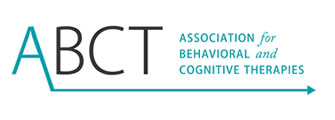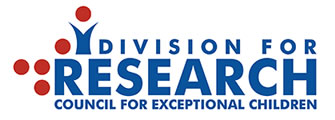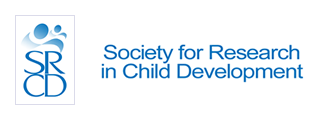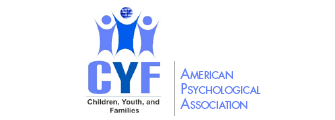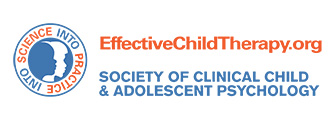
We all know that healthy children sometimes argue, are aggressive, or act angry or defiant around adults. We also know that dealing with those behaviors is a typical part of parenting. But for some families, when this kind of behavior goes beyond typical, causes stress, disruptions, and problems with getting along, it can become a disruptive behavior disorder. Getting the right treatment early is key, and families need help finding what works and what’s right for them.
When disruptive behavior becomes a disorder
Occasional, mild disruptive behavior is part of healthy development. At different times in their development, children may act out because they want to make their wishes known or are learning to become more independent. So, a toddler may have a tantrum or a teenager may be argumentative as they are working to learn new skills.
A behavior disorder may be diagnosed when disruptive behaviors are uncommon for the child’s age at the time, persist over time, or are severe. Because disruptive behavior disorders involve acting out and showing unwanted behavior towards others, they are often called externalizing disorders. This kind of behavior negatively impacts the child and the people around them.
Disruptive behavior disorders, such as oppositional defiant disorder and conduct disorder, can cause problems for the child, such as with getting along with parents and siblings, making and keeping friends, and getting in trouble in school. They can make children feel bad about themselves. Having a disruptive behavior disorder can put children at risk for long-term problems including mental disorders, violence, and delinquency.
It’s not always easy to know exactly when disruptive behaviors have gone on long enough or are severe enough to receive a diagnosis. And particularly for younger children it can be difficult to know whether the disruptive behavior might have to do with other conditions like ADHD or anxiety. If you are a parent with concerns, talk to your doctor about getting a careful evaluation by someone who is trained in children’s development and mental health.
Getting the right treatment
The good news is that there are approaches to treatment that are effective and improve children’s behavior. Recent research looked at different approaches for treating disruptive behavior problems in children up to age 12 years and found the best evidence was for parent behavior therapy, when delivered either as group therapy or individually with child participation. Read more about this research review. Parent behavior therapy is sometimes also called Parent Training in Behavior Therapy, Behavior Management Training for Parents, or Behavioral Parent Training.
Parent behavior therapy means that parents work with the therapist on skills to help them manage their child’s behavior in a way that works for that particular child. When you take part in parent behavior therapy, you can learn new approaches or improve your current approaches to
- create enough structure in your child’s life,
- provide the right feedback at the right time to reinforce good behavior,
- provide consistent and effective discipline, and
- strengthen your relationship with your child through positive communication.
Another good thing is that you don’t have to be sure whether your child has a disorder before you can use parent behavior therapy. Many of the programs that work for children with diagnosed behavior problems have also been successful in preventing behavior disorders. And they work for children with ADHD. Even if you feel that your child’s behavior isn’t all that different from what’s expected, but you would like some help and support, a skilled therapist can help you fine-tune your parenting skills. Parents who receive this type of training often report feeling more confident and less stressed.
Finding what works for your family
To get help from someone with the right kind of experience, look for a therapist who focuses on training parents. Psychologists, social workers, and licensed counselors can provide this kind of training to parents. Some therapists will have training or certification in a program that has been proven to work in children with behavior problems. Here is what to expect from the proven programs:
- Parents typically attend eight or more sessions with a therapist.
- Sessions may involve groups or individual families.
- The therapist meets regularly with the family to review their progress, provide support, and adjust strategies as needed to ensure improvement.
- Parents practice with their child during or between sessions.
There are probably approaches that don’t involve parent behavior therapy which can work well for individual families, but we don’t have enough evidence to be sure.
Many skilled therapists don’t follow specific training manuals, but use behavior therapy techniques to create an approach that is individualized for each family, which can also be effective
Here are some questions to ask when looking for parent behavior therapy:
Does this therapist
- Teach parents skills and strategies that use positive reinforcement, structure, and consistent discipline to manage their child’s behavior?
- Teach parents positive ways to interact and communicate with their child?
- Assign activities for parents to practice with their child?
- Meet regularly with the family to monitor progress and provide coaching and support?
- Re-evaluate and remain flexible enough to adjust strategies as needed?
Therapists may be found through professional association directories or through health insurance provider directories. You can review the therapist’s online profile or call and ask the therapist to describe their approach to treating disruptive behavior disorders.
Proper citation link for this blog post:Claussen, A.H. & Kaminski, J.W.(July 18, 2018). Treatment of Disruptive Behavior Problems in Children—What Works? Retrieved from https://infoaboutkids.org/blog/treatment-of-disruptive-behavior-problems-in-children-what-works.

